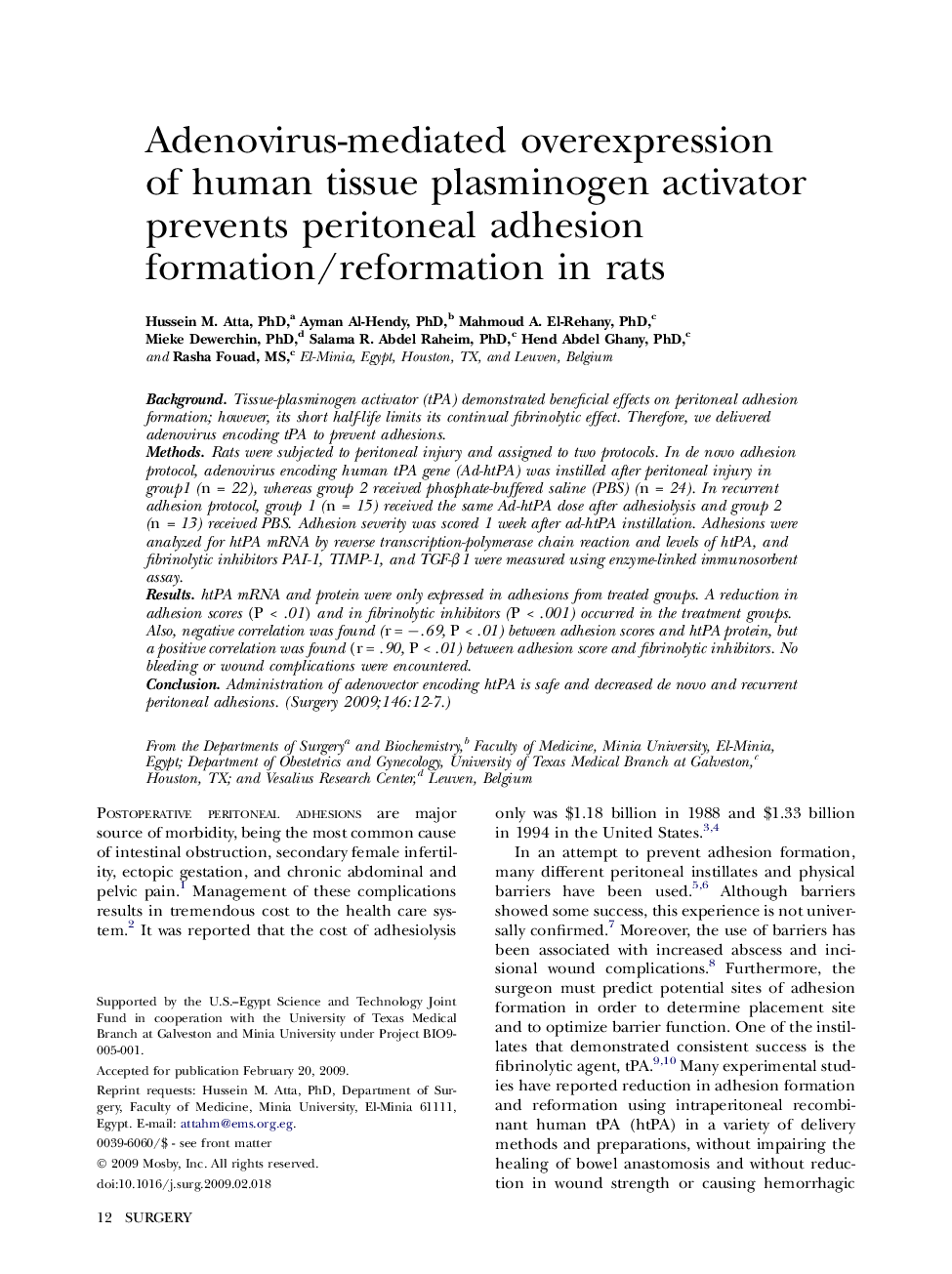| Article ID | Journal | Published Year | Pages | File Type |
|---|---|---|---|---|
| 4309539 | Surgery | 2009 | 6 Pages |
BackgroundTissue-plasminogen activator (tPA) demonstrated beneficial effects on peritoneal adhesion formation; however, its short half-life limits its continual fibrinolytic effect. Therefore, we delivered adenovirus encoding tPA to prevent adhesions.MethodsRats were subjected to peritoneal injury and assigned to two protocols. In de novo adhesion protocol, adenovirus encoding human tPA gene (Ad-htPA) was instilled after peritoneal injury in group1 (n = 22), whereas group 2 received phosphate-buffered saline (PBS) (n = 24). In recurrent adhesion protocol, group 1 (n = 15) received the same Ad-htPA dose after adhesiolysis and group 2 (n = 13) received PBS. Adhesion severity was scored 1 week after ad-htPA instillation. Adhesions were analyzed for htPA mRNA by reverse transcription-polymerase chain reaction and levels of htPA, and fibrinolytic inhibitors PAI-1, TIMP-1, and TGF-β1 were measured using enzyme-linked immunosorbent assay.ResultshtPA mRNA and protein were only expressed in adhesions from treated groups. A reduction in adhesion scores (P < .01) and in fibrinolytic inhibitors (P < .001) occurred in the treatment groups. Also, negative correlation was found (r = −.69, P < .01) between adhesion scores and htPA protein, but a positive correlation was found (r = .90, P < .01) between adhesion score and fibrinolytic inhibitors. No bleeding or wound complications were encountered.ConclusionAdministration of adenovector encoding htPA is safe and decreased de novo and recurrent peritoneal adhesions.
